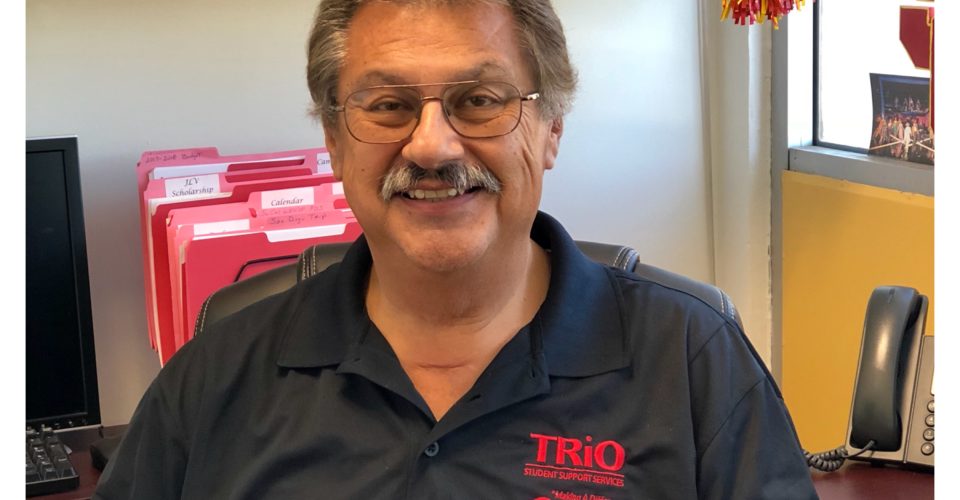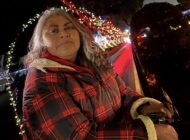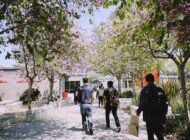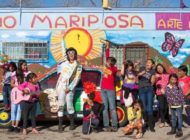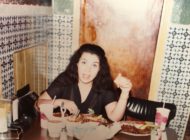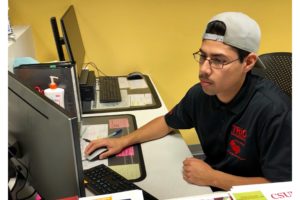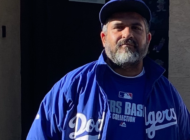“We were always told by the professors about the history before us, the people that sacrificed to establish the department and they always instilled in us, our responsibility is to make sure that we kept the doors open for those who came after us so we were very much involved”.
BY LESLIE IGNACIO
EL NUEVO SOL
The Chicano Movement during the 1970’s allowed him to attend CSUN in order to receive a higher education and the same opportunities given to students not belonging to a minority group. It also became the reason he began working with programs that allowed him give back what he was once given.
Current TRIO Student Support Services director, Frank Muñiz, 61, is a long time faculty member as well alumni. Born in El Paso, Texas in 1957 and moved by his parents to Santa Monica, California at six months old. Two years after his family moved to East Los Angeles they then moved to North East Los Angeles. Growing up Muñiz’s education was a mixture of public schools and private catholic schools.
“It’s funny how my parents always knew we were going to go to college, but they never knew what was the process or what was the procedure”, said Muñiz.
When Muñiz’s older brother’s teacher had students fill out applications as an exercise for San Fernando Valley College he was opening a door for many years to come for the Muñiz siblings. As four of his five siblings, including Muñiz, attended CSUN for their undergraduate. In 1975, after graduating high school, he began his life long journey with CSUN as he began pursuing his degree in Chicano/a Studies.
Muñiz was very involved in student rights within minority groups while attending the university. He felt a strong connection between the faculty and students because there was only about a 10-year difference in age.
“It was very interesting because it was still in that period where the Chicano Studies department was very active, I mean it’s still active now, but back then it was a different activism. Back then there was a lot less Chicano and African American students so we were always fighting to bring in more students… Back then we were the minority, we were looked down upon. We heard remarks like what are they doing here and they don’t belong here type of thing and not just from students but from faculty members would say things like that”, said Muñiz.
Although they faced hardships, that did not discourage them. Muñiz was very involved in M.E.C.H.A which stands for Movimiento Estudiantil Chicano/a De Aztlán, that had many subcommittees that were able to provide help for those who wanted to pursue careers medicine, teaching and much more. It was young professors and students helping each other in the process of higher education.
“We were always told by the professors about the history before us, the people that sacrificed to establish the department and they always instilled in us, our responsibility is to make sure that we kept the doors open for those who came after us so we were very much involved”, said Muñiz.
Students like Muñiz, fought to receive the same type of treatment and for the lack of representation. Oct. 5, marked 38 years since the beating of a student in the pub by the baseball team. These types of injustices were what Muñiz and many others were working to end.
Muñiz graduated from CSUN, in May of 1980, but a semester before was already a professional staff member on campus through a program name, Chicano Pride which was offered under the Educational Participation and Communities program. Then, Muñiz moved on to a bank, Valley Federal Savings, but did not like it much after some time.
“It came to the point that I didn’t like what I was doing anymore. I came back after a year; I came back to CSUN. I was hired as a part time instructor… also at that time, another program was established called Student Affirmative Action which was similar to the EOP program, but this program was for students who did not qualify for EOP”, said Muñiz.
He was then working for the counseling section of Student Affirmative Action which was under the Education Equity Programs that soon began merging the program with EOP, Equal Opportunities Program. He was now working under Jose Luis Vargas and was able to move his way up to different positions within EOP until he left again.
“I left for I think six years, I started a nonprofit in the city of San Fernando, it was called the Institute for Leadership Development and Education. We had a contract with the California Department of Education and we offered preschool services”, said Muñiz.
As the president and CEO of the organization, he was able to have eight preschool sites through the Los Angeles county that served about 825 families and had close to 150 full time employees. Although the contract ended in September of 2010, CSUN was always wanting Muñiz back.
In September of 2009, Jose Luis Vargas told Muñiz he was writing the grant for the TRIO Student Support Services program and wanted him to be the director. Ever since Muñiz has been back on the CSUN campus serving and giving back to his community.
He was able to further his education on the CSUN campus, with a master of Public Administration in 2012. And an Executive Masters of Leadership on the USC campus in 2017. As a first generation student himself, Muñiz understands the importance of these programs on university campuses helping students navigate higher education.
“We have been successful for the last 50 years and the need is still there. We still have communities that are underrepresented in higher education and who need that support in order to be successful”, said Muñiz.
CSUN and these programs have been a home for Muñiz for many years and even when times get tough student successes always help him stay focused on what is truly important to him, the impact he can have on students within minority groups excelling.
“Until you run into somebody out in the community and then they tell you they remember you. They come and they tell you, you did this for me and because of that I was able to go to medical school or I was to complete my degree in business and now I’m able to provide services to the community members”, said Muñiz.
Tags: Chicano movement Chicano/a studies CSUN EOP Frank Muñiz Leslie Ignacio TRIO SSS






